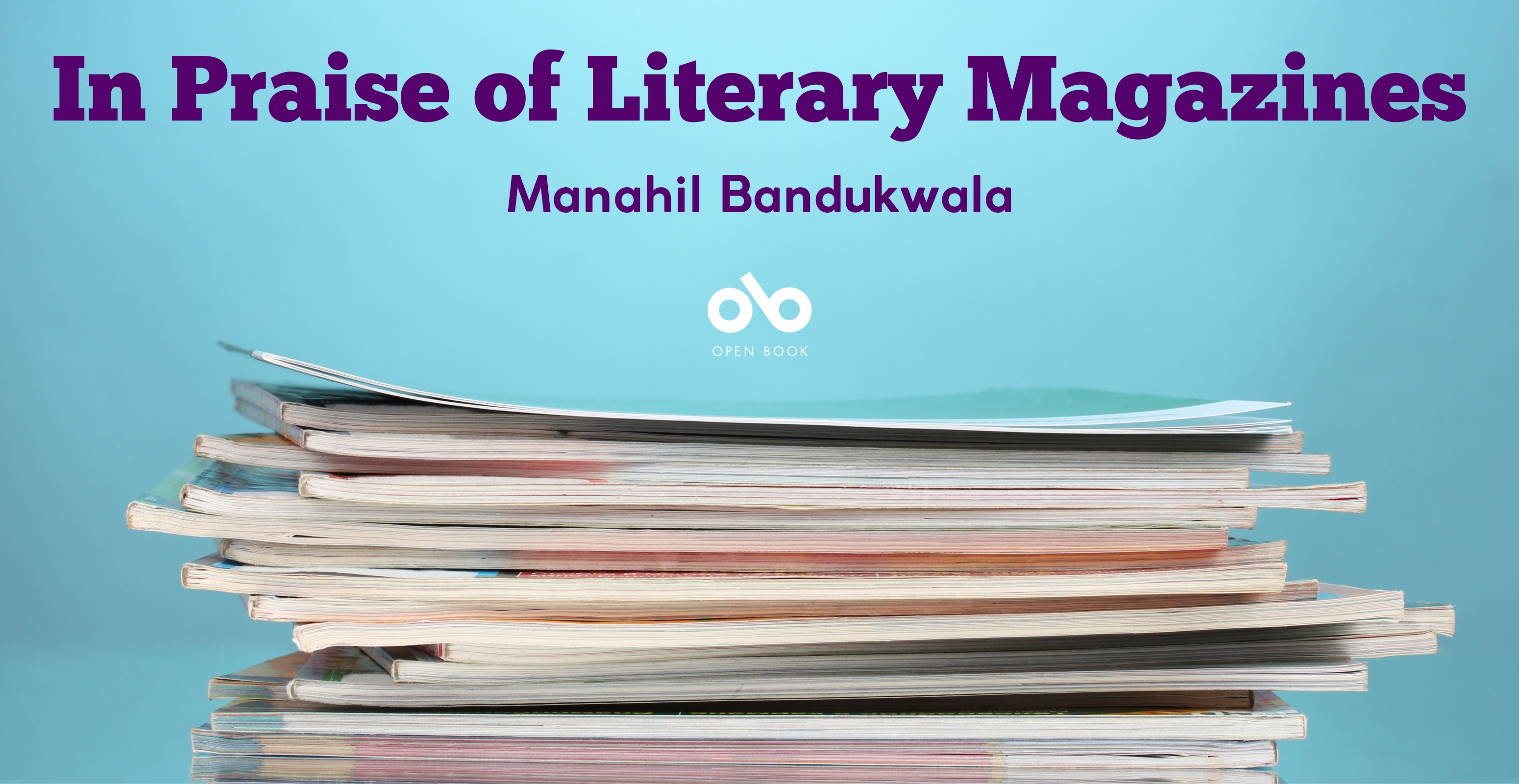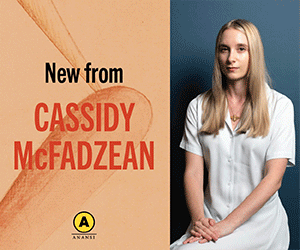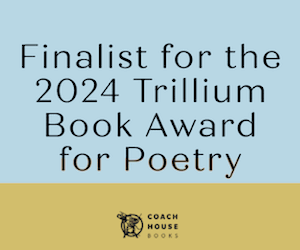In Praise of Literary Magazines
By Manahil Bandukwala
Within the small world of poetry readership in Canada, trade poetry collections are likely more widely read than other forms of publication.
But publishing a trade collection of poetry through traditional means is often a years-long process of writing and submitting to presses. Once a poet receives a publication offer, there may be another couple of years before the book actually goes to print. Rather than being an immediate reflection of poetry trends, a traditionally published trade book is more likely a collection of concerns or trends in a specific period of a poet’s writing—a period that could be as recent as two years past, or as old as twenty.
For National Poetry Month, I wanted to write an article that highlights the work of literary magazines—specifically ones in Canada—as these avenues are often a place that reflect the concerns and focuses that pop up in the latest writing by Canadian poets. While poetry and poetry-related content isn’t the biggest sell for broader culture and arts magazines, literary magazines seem to have more page space dedicated to poetry (and then there are poetry-only magazines like Arc Poetry Magazine and Contemporary Verse 2!)
I do feel it necessary to mention that there are barriers when submitting to literary magazines, including high volumes of submissions to fight through, month-long wait times, and more. Magazines, like most organizations in the literary world, struggle with underfunding and a lack of revenue streams, which makes it difficult for both those working tirelessly behind the scenes and those contributing to view these endeavours as ones worth celebrating.
But literary magazines at their best offer space for writers at the start of their writing journeys, long before they have enough poems to collect into a book, or even a chapbook.
Your CanLit News
Subscribe to Open Book’s newsletter to get local book events, literary content, writing tips, and more in your inbox
Writers and readers hear about the power of stories, but as a writer, I’ve often faced a feeling of hopelessness on what literature and writing can actually achieve. This is even more true for poetry. I’m optimistic about what poetry’s power to capture, reflect, and intervene in the world, but also want to be careful not to overestimate poetry’s capabilities.
But writers and editors are not separate from the world we inhabit. In some of our small capacities, we try to shape conversations and create avenues through what the magazine publishes. Having sat on editorial boards of several literary magazines, I can confirm that conversations and reflections on both poetry trends and reflections on the world are always occurring within editorial meetings. Themes and calls for submission are never created isolated from the concerns of the world and the concerns of the poets who submit to magazines.
Themed calls for submission are an especially interesting survey of what Canadian poets are writing about in numbers large enough for editors to take note. For example, within the past year, calls for issues like Room and Augur’s combined issue on the theme of “Utopia,” and The Capilano Review’s call “On Collective Care,” reflect desires within poetry for hopeful future-building. I think about the words of Room editor, Micah Killjoy for the Utopia issue: “In our artistic practices and our activisms, we are constantly inventing new and original worlds—with every protest, every political zine, and every direct action we declare that the future is not yet decided. Our wish to you is that we all find utopia for ourselves, in past, in present, and in the gleaming, unwritten future.”
Dystopian fiction has been popular for as long a I can remember. Writing and imagining utopia, however, feels newer and radical in an era where structures of power (capitalism, colonialism, you name it) count on our hopelessness. By writing poetry imagining possible and better futures, I like to think I’ve fostered a more compassionate life for myself.
The views expressed by Open Book columnists are those held by the authors and do not necessarily reflect the views of Open Book.
Manahil Bandukwala is a multidisciplinary artist and writer. She is the author of Women Wide Awake (Mawenzi House, 2023) and Monument (Brick Books, 2022; shortlisted for the Gerald Lampert Memorial Award), and numerous chapbooks. In 2023, she was selected as a Writer's Trust Rising Star. See her work at manahilbandukwala.com.




